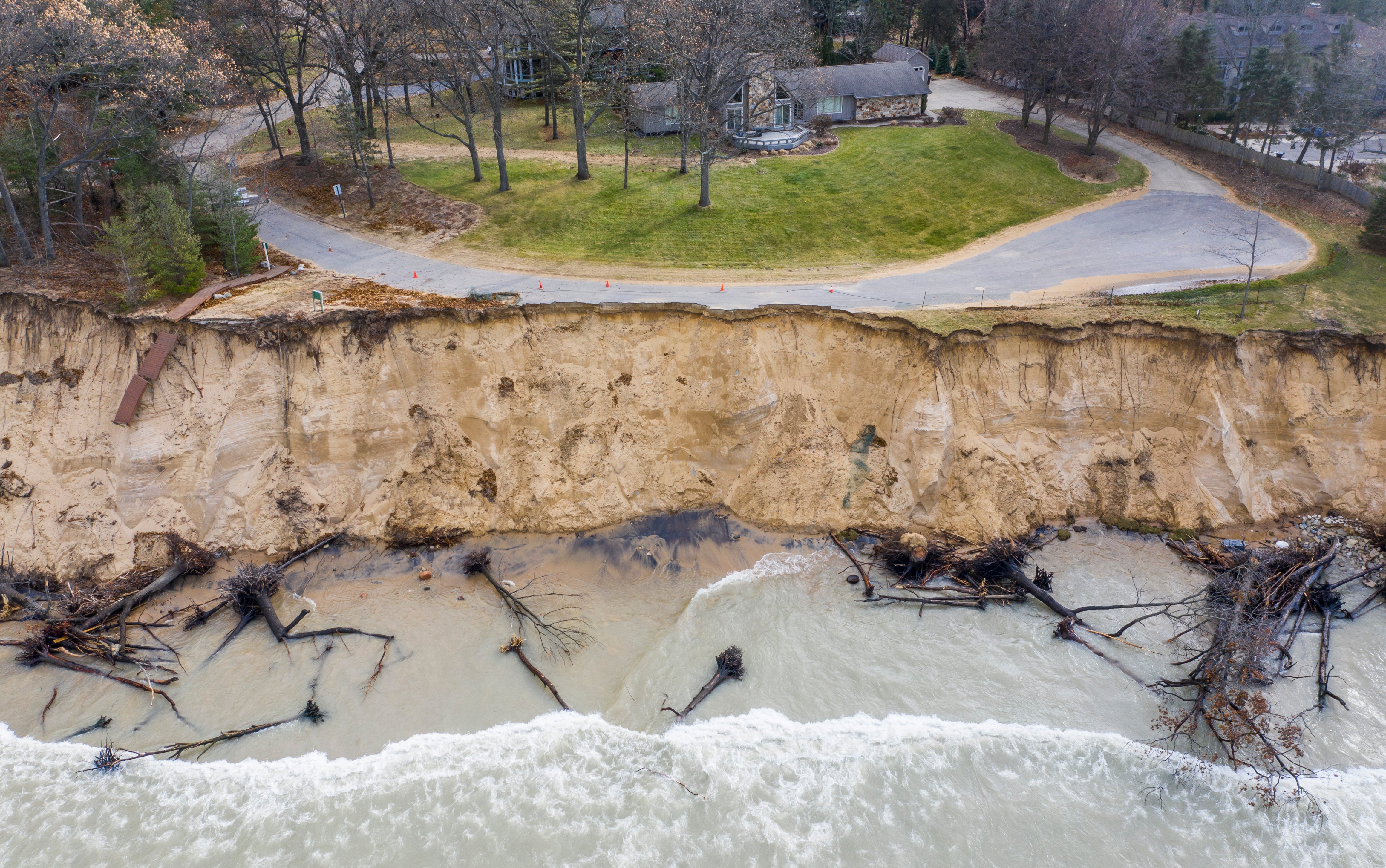Great Lakes water surge eases after 2 record-setting years
After two years of record high water, the Great Lakes are getting a break

A spell of dry, mild weather is giving the Great Lakes a break after two years of high water that has shattered records and heavily damaged shoreline roads and homes, officials said Monday.
Although still above normal, the lakes have dropped steadily since last fall and are expected to remain below 2020 levels for most of this year, according to a U.S. Army Corps of Engineers forecast.
“Over the next six months, the worst is behind us,” said John Allis, chief of Great Lakes hydrology for the Corps' Detroit district. “We really shouldn’t be seeing anywhere near the record highs that we saw last year."
But officials cautioned that it's too early to declare an end to the high-water period.
Levels fluctuate reliably with the seasons each year. But long-term trends that can bring extreme, prolonged surges or drop-offs depend on factors such as rain and snow, temperatures and evaporation rates, which are hard to predict.
“Certainly there’s a suggestion based on the recent past that precipitation will go back up again,” said Jeff Andresen, the Michigan state climatologist. “So it’s something we’ll just have to be aware of and be prepared.”
A decline that began in the late 1990s, bottoming out in early 2013, gave way to a rapid climb that has eroded shorelines and hammered infrastructure across the region. Records were shattered on all five lakes.
An organization representing coastal cities and towns conservatively estimated damages at over $500 million.
Scientists say the warming global climate may produce more abrupt swings in the future. But for now, it appears the region will get some relief.
The weather was milder and drier than usual from November through April, with winter snowfall was well below normal. Aside from a February cold snap, the lakes had relatively little ice cover. Low humidity and sunny skies boosted evaporation.
“This is one of the drier years we've seen in some time,” with large portions of the region considered in a moderate drought, Andresen said.
Each of the lakes was down significantly in April from the same month in 2020. Lake Ontario dropped 28 inches (71 centimeters), while Lakes Huron and Michigan — which are connected and have the same level — declined 14 inches (35.5 centimeters). Lake Erie fell 17 inches (43.2 centimeters) and Lake Superior 6 inches (15.2 centimeters).
While levels will experience their usual spring and summer rise, it began late and won't pack the same punch as during the previous two years, Allis said.
But the effects linger, as residents and governments deal with environmental and infrastructure damage and debate the wisdom of hasty measures to protect shoreline property, particularly construction of breakwalls and jetties that steer waters and sediments elsewhere.
“What's happening upshore may have an impact downshore," said Brandon Krumwiede, a physical scientist in the National Oceanic and Atmospheric Administration's coastal management office.
Bookmark popover
Removed from bookmarks